About
We are chemists, physicists, mathematicians, engineers, biologists who work alongside to design bionic units that mimic specific biological functions and/or introduce operations that do not exist in Nature. We apply a constructionist approach where we mimic biological complexity in the form of design principles to produce functional units from simple building blocks and their interactions. We called such an approach: Molecular Bionics.
We are engaged in several activities involving the synthesis and characterisation of novel hierarchal materials whose properties are the result of the holistic combination of its components:
Molecular Engineering
We combine synthetic and supramolecular chemistry to tune inter/intramolecular interactions and self-assembly processes to form dynamic soft materials whose molecular, supramolecular and mesoscale structures are tuned and fit for the final application (pictured right: molecular engineering of nanoscopic structures starting from molecule passing to polymers and finally to supra molecular structures).
Physical Biology
Our materials are designed to interact with living systems and thus its biological activity is studied in high detail. We have developed and established new methodologies to study living systems and how synthetic materials interact with them combining holistically physical and life sciences (Physical Biology).
Synthetic Biology
Both know-hows are applied to study biological organisation and complexity creating synthetic surrogates that act as models, as well as to engineer novel sophisticated ways to interact with living organisms.
Somanautics
In analogy to medical bionics, where engineering and physical science converge to the design of replacement and/or enhancement of malfunctioning body parts, we take inspiration from viruses, trafficking vesicles and exosomes to apply molecular engineering to create nanoscopic carriers that can navigate the human body (Somanautics) with the final aim to improve drug delivery or create new diagnostic tools.
Visit our external website to find out more.
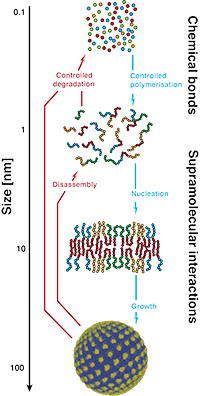


Staff
Giuseppe Battaglia
Projects
| INTERNATIONAL GRANTS | FINANCER | PI |
|---|---|---|
| CheSSTag · Chemotactic Super-Selective Targeting of Gliomas (2020-2023) | European Comission / ERC-CoG | G. Battaglia |
| NATIONAL PROJECTS | FINANCER | PI |
|---|---|---|
| BrainPePN · Nanomedicinas de precisión que penetran el cerebro (2021-2024) | MICIU / Retos investigación: Proyectos I+D | G. Battaglia |
| FUNDRAISING PROJECTS | FINANCER | PI |
|---|---|---|
| A por la COVID-19 (2021-2022) | IBEC / Faster Future 2020 | G. Battaglia |
Publications
Equipment
- State-of-the-art facilities for cell culture including 5 class A cell cabinets: one dedicated for LPS and RNAse free cell culture and one dedicated for infected tissues
- Fluorescence Activated Cell Sorting (FACS)
- Confocal microscope to perform live cell 4D imaging
- Thermocycler
- Real-time PCR
- Automated Western Blot
- Gel Permeation Chromatography
- High-Performance Liquid Chromatography
- Ultra Performance Liquid Chromatography equipped with fluorescence, UV/Vis and Infrared and light scattering detectors
- Dynamic light scattering unit
- Nanoparticle tracking analysis
- UV and Fluorescence spectroscopy
- Automated liquid handling units
- Nanoparticle production units
Collaborations
- Xavier Salvatella
IRB Barcelona - Francesca Peiro
Physics-University of Barcelona - Kostas Kostarellos
Life Science- University of Manchester/ICN2 - Giorgio Volpe
Chemistry-UCL - Simona Parrinello
Cancer Institute -UCL - Finn Werner
Structural Biology -UCL - Nick Lane
Evolutionary Biology -UCL - Darren Hargraves
Pediatric Neuro-Oncology -UCL - Timothy McHugh
Clinical Microbiology =UCL - Sebastian Brander
Neurology -UCL - Joan Abbott
Physiology -King’s College London - Molly Stevens
Bioengineering -Imperial College London - Stefano Angioletti-Uberti
Materials Science -Imperial College London - Ricardo Sapienza
Physics -Imperial College London - Daan Frenkel
Chemisty-University of Cambridge - Charlotte Williams
Chemistry -University of Oxford - Francesco Gervasio
Pharmacology -University of Geneve/UCL, UK - Francesco Stellacci
Bionegineering -EPFL Switzerland - Tambet Tessalu
Cancer Biology -University of Tartu (Estonia)/ Sanford Burnham Prebys Medical Discovery Institute - Darrel Irvine
Bioengineering -MIT - Xiaohe Tian
Life Sciences University of Anhui - Yupeng Tian
Chemistry University of Anhui - Lei Luo
Pharmacy -Southwest University, China - Kai Luo
HuaXi hospital Sichuan University - Darren Hargrave
Great Ormond Street Hospital, UCLH London - Sebastian Brander
Queen Square National Centre for Neurology, UCLH London
News
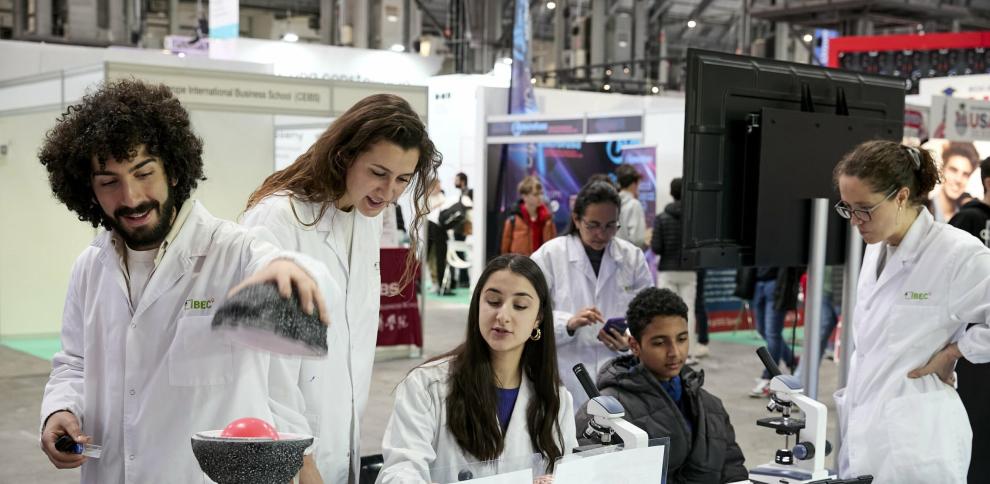
Una inmersión en la ciencia para fomentar vocaciones STEAM
El EspaiCiència se consolida como un referente en la divulgación científica dentro del Saló de l’Ensenyament, y proporciona a los jóvenes herramientas y conocimientos para adentrarse en el mundo de la ciencia y la tecnología
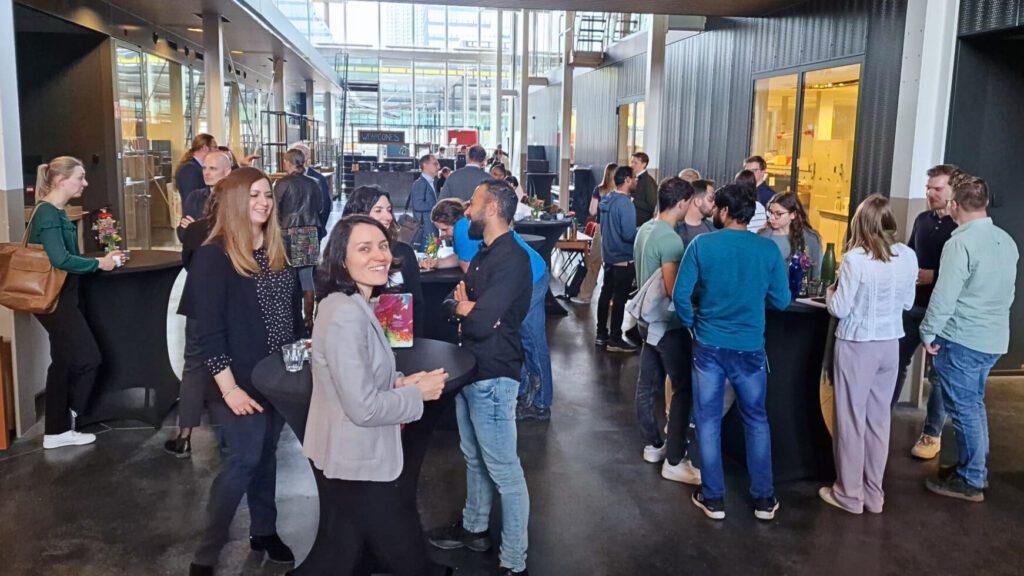
El IBEC y el ICMS se reencuentran en Eindhoven para celebrar su Simposio Anual en colaboración
Hoy, 24 de marzo, se ha celebrado el simposio conjunto ICMS-IBEC-MPIP. Un evento coorganizado por el Instituto de Bioingeniería de Cataluña (IBEC), el Instituto de Sistemas Moleculares Complejos (ICMS) y el Instituto Max Planck de Investigación en Polímeros (MPIP). Durante la jornada, investigadores de los tres centros han compartido sus áreas de investigación, buscando fortalecer los lazos científicos entre las instituciones.
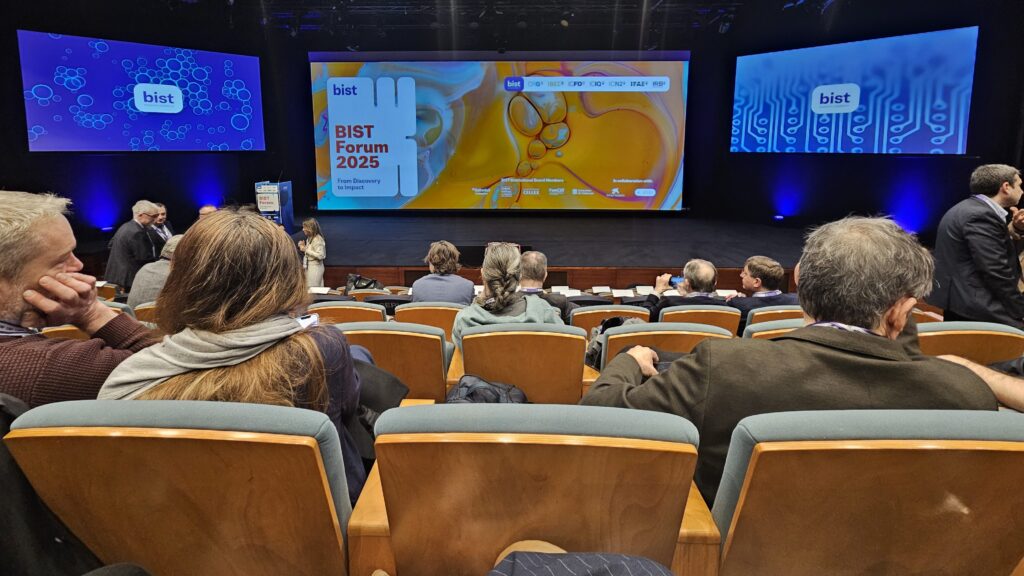
El IBEC destaca en el BIST Forum con 4 proyectos BIST Ignite y un BIST Ignite Award
Hoy se ha celebrado el BIST Forum, un evento que reúne a la comunidad científica del BIST y que este año se ha centrado en la iniciativa conjunta de los siete centros CERCA para impulsar la medicina de precisión en el envejecimiento saludable. Durante el acto, se han anunciado los nuevos proyectos BIST Ignite para fomentar la investigación multidisciplinar, con la participación del IBEC en cuatro de los cinco seleccionados. Además, uno de los proyectos con participación del IBEC ha sido galardonado con un BIST Ignite Award.
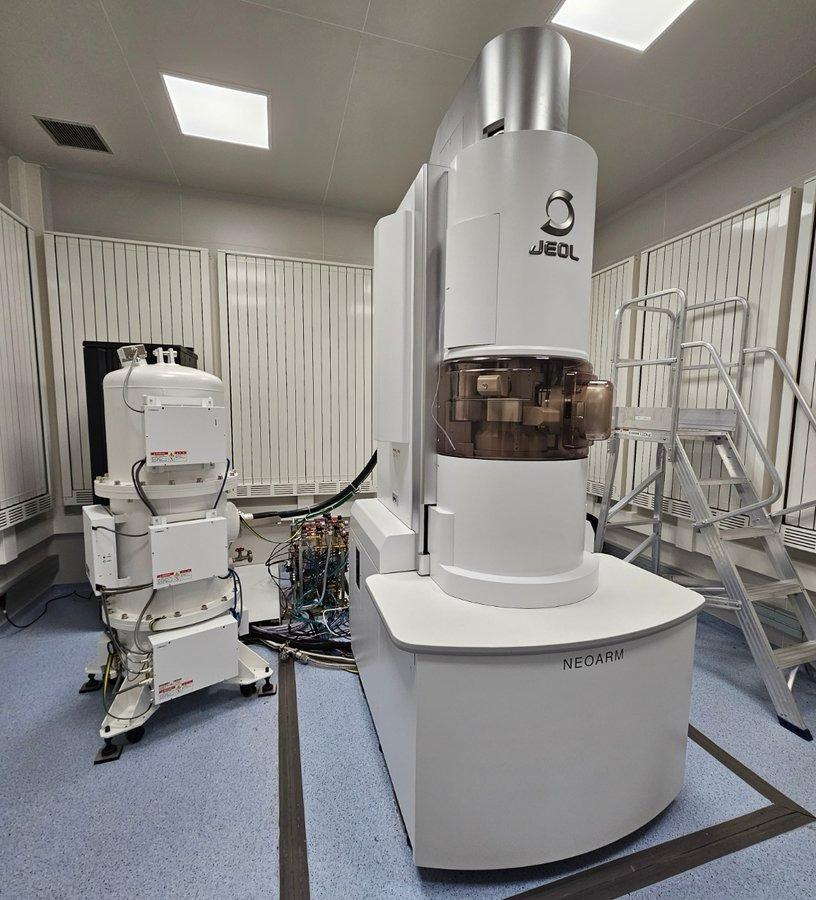
El IBEC cofinancia un nuevo microscopio electrónico de última generación
El presidente de la Generalitat, Salvador Illa, y la consellera de Recerca i Universitats, Núria Montserrat, han inaugurado hoy esta infraestructura singular localizada en el Parc Científic de Barcelona. El microscopio, que ha contado con financiación del IBEC y de fondos FEDER* , abre la puerta a la reconstrucción de biomoléculas y virus en tres dimensiones, entre otras aplicaciones.
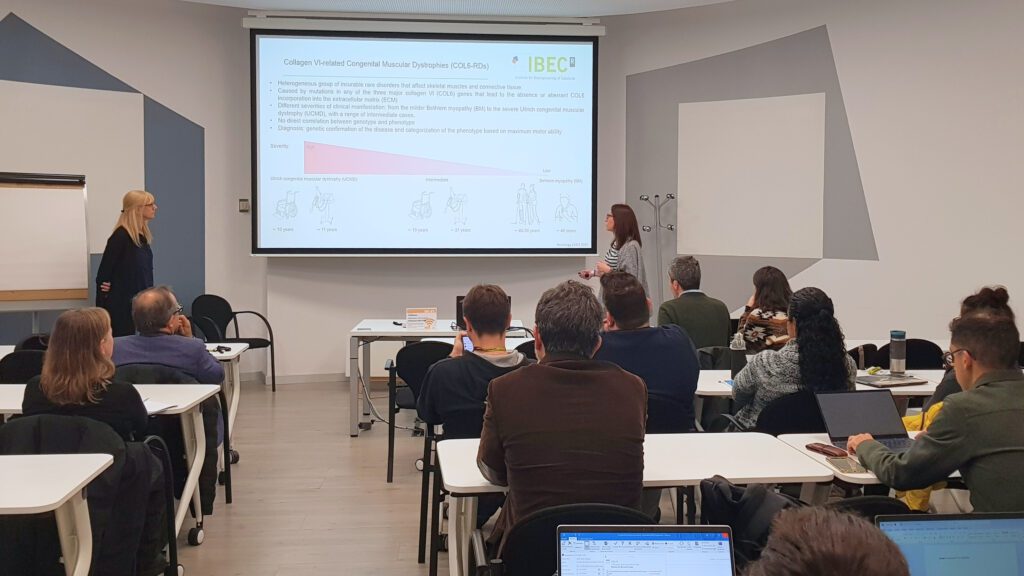
El IBEC y el Hospital Sant Joan de Déu refuerzan su colaboración con una jornada de innovación traslacional
El Instituto de Bioingeniería de Cataluña y el Hospital Sant Joan de Déu han celebrado una jornada conjunta para impulsar colaboraciones en bioingeniería y medicina traslacional. El evento, realizado esta mañana en el IBEC, puso de relieve proyectos innovadores, presentó un programa de doctorado conjunto y fomentó el intercambio de ideas entre investigadores de ambas instituciones.
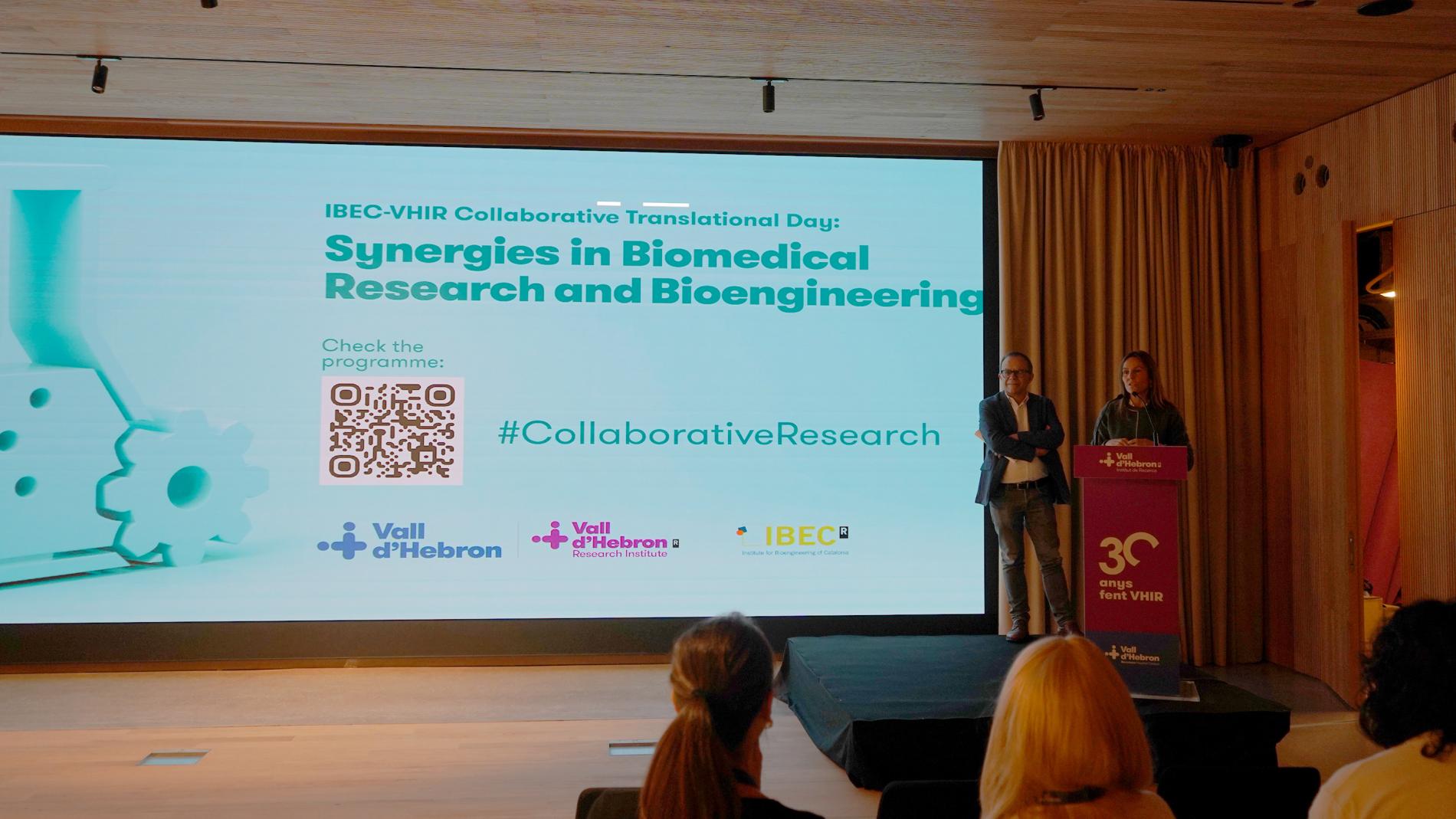
El IBEC y el VHIR celebran una jornada de colaboración para fomentar las sinergias
La 1ª Jornada Colaborativa Traslacional entre el Vall d’Hebron Instituto de Investigación (VHIR) y el Instituto de Bioingeniería de Cataluña (IBEC), celebrada el 21 de noviembre, ha sido una oportunidad para conocer proyectos y líneas de investigación de ambas instituciones y promover la interacción entre los profesionales.
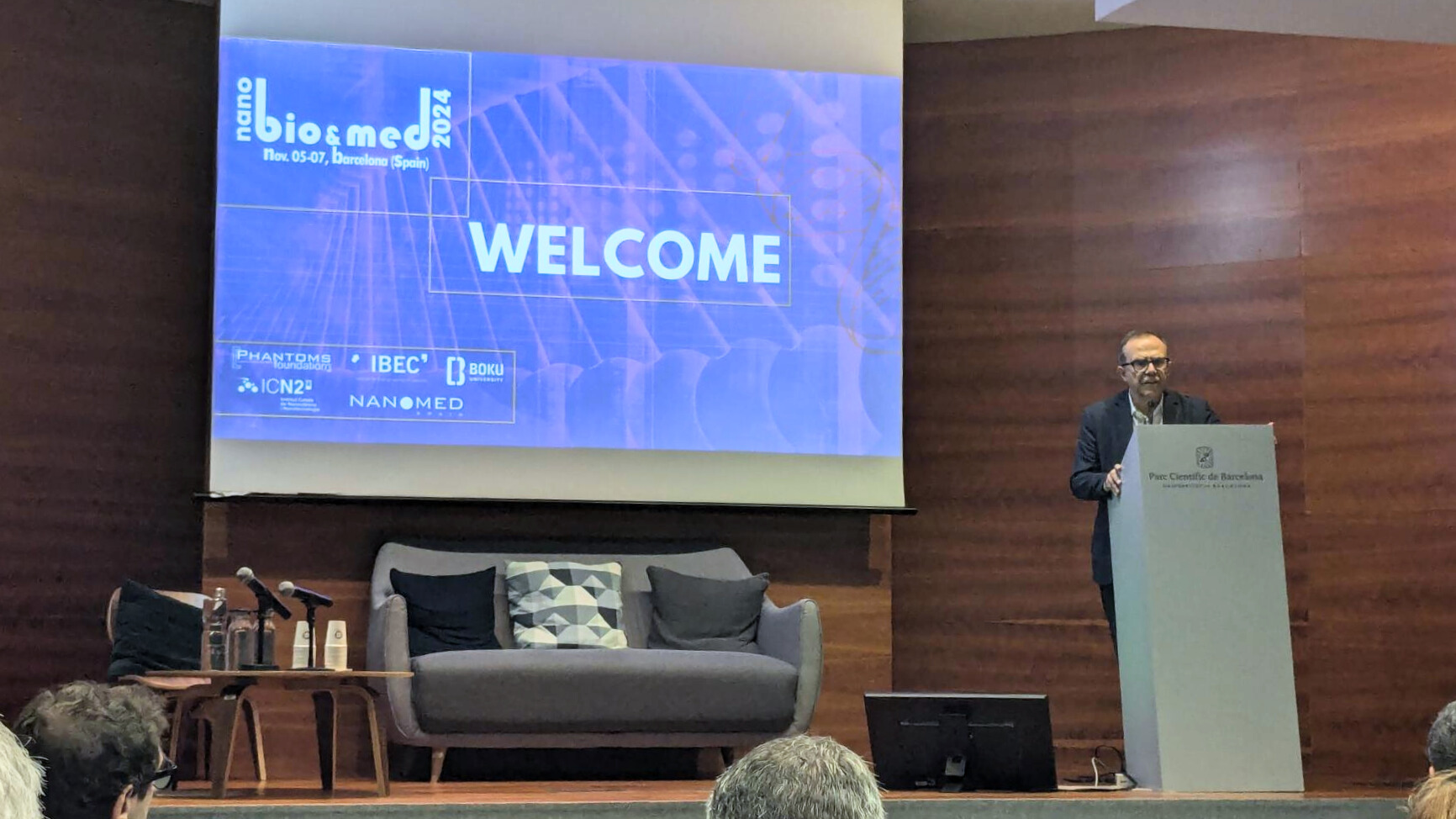
Explorando los avances de la nanobiotecnología y nanomedicina en la 12ª Conferencia Internacional NanoBio&Med
La Conferencia Internacional NanoBio&Med 2024, celebrada esta semana en el Parc Científic de Barcelona (PCB) entre los días 5 y 7 de noviembre, ha presentado los desarrollos más recientes en los campos de la nanotecnología, biotecnología y medicina. Se trata de una cita anual para establecer nuevas colaboraciones e impulsar proyectos innovadores en el sector científico-industrial.
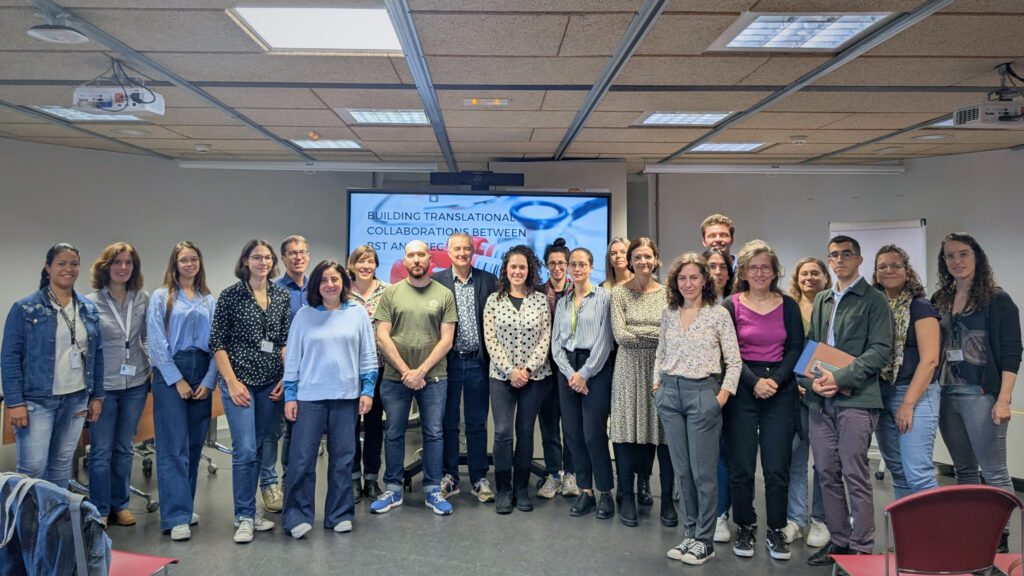
El IBEC y el Banco de Sangre y Tejidos fortalecen lazos con una jornada de colaboración traslacional
El IBEC y el Banc de Sang i Teixits han celebrado una jornada para explorar nuevas colaboraciones en bioingeniería y medicina traslacional. El encuentro, celebrado ayer en el IBEC, destacó proyectos innovadores, presentó un programa de doctorado conjunto y reforzó la conexión entre investigación biomédica y aplicaciones clínicas.
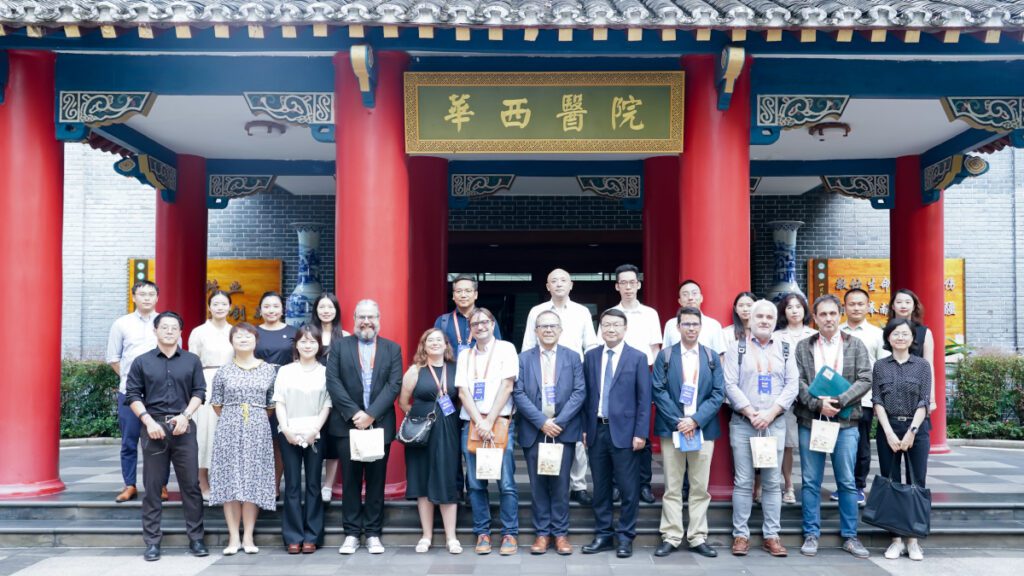
El IBEC y el Hospital West China refuerzan su colaboración en medicina de precisión
La semana pasada se celebró en Chengdu, China, la segunda Conferencia de Medicina de Precisión IBEC-WCH. Se trata de una alianza entre el Instituto de Bioingeniería de Cataluña (IBEC) y el Hospital West China (WCH) de la Universidad de Sichuan, que busca impulsar la colaboración científica entre ambos países.
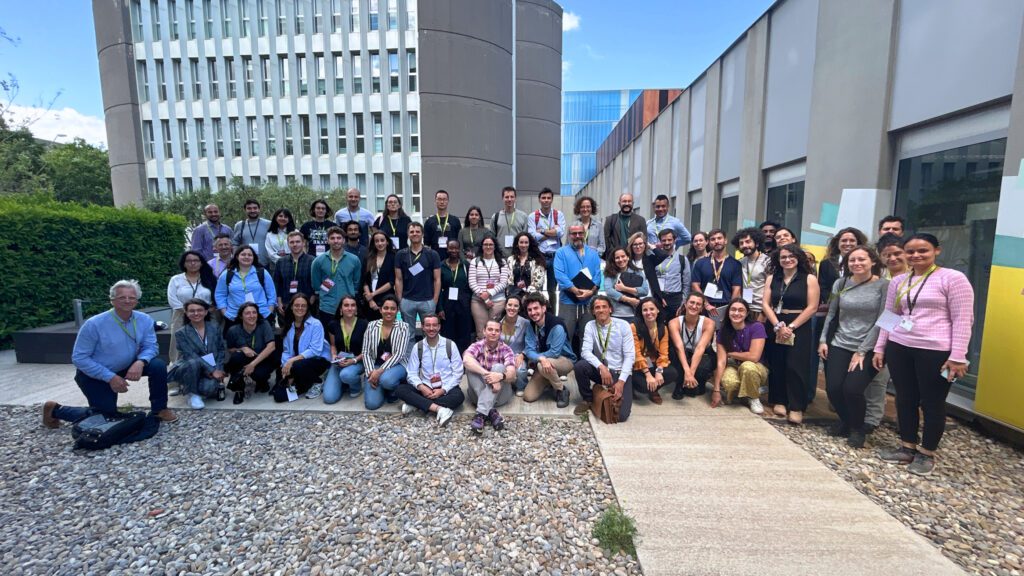
El IBEC celebra la primera edición del Simposio Barcelona Blood-Brain-Barrier
El evento, celebrado los días 21 y 22 de mayo de 2024, reunió a expertos y expertas en biología, ingeniería y medicina para discutir los últimos avances en la investigación de la barrera hematoencefálica y su papel en los trastornos cerebrales. Se trata de la primera edición del simposio, organizado por el IBEC.
Jobs
Postdoctoral Researcher at the Molecular Bionics Research Group
Ref: PR_GB // Deadline: 11/08/2024
Postdoctoral Researcher at the Molecular Bionics Research Group (PD_GB)
Ref: PD_GB // Deadline: 24/05/2024
Senior Laboratory Technician at the Molecular Bionics Research Group (SLT_GB)
Ref: SLT_GB // Deadline: 24/12/2023
Research Assistant at the Molecular Bionics Research Group (RA_GB)
Ref: RA_GB // Deadline 12/12/2023
Part-time lab manager (Tissue Engineering) in the Molecular Bionics Group (LM_GB)
Ref: LM_GB // Deadline: 31/08/2023
Senior Translational Material Scientist/Chemist at the Molecular Bionics Group (STM_GB)
Ref: STM_GB // Deadline: 31/08/2023

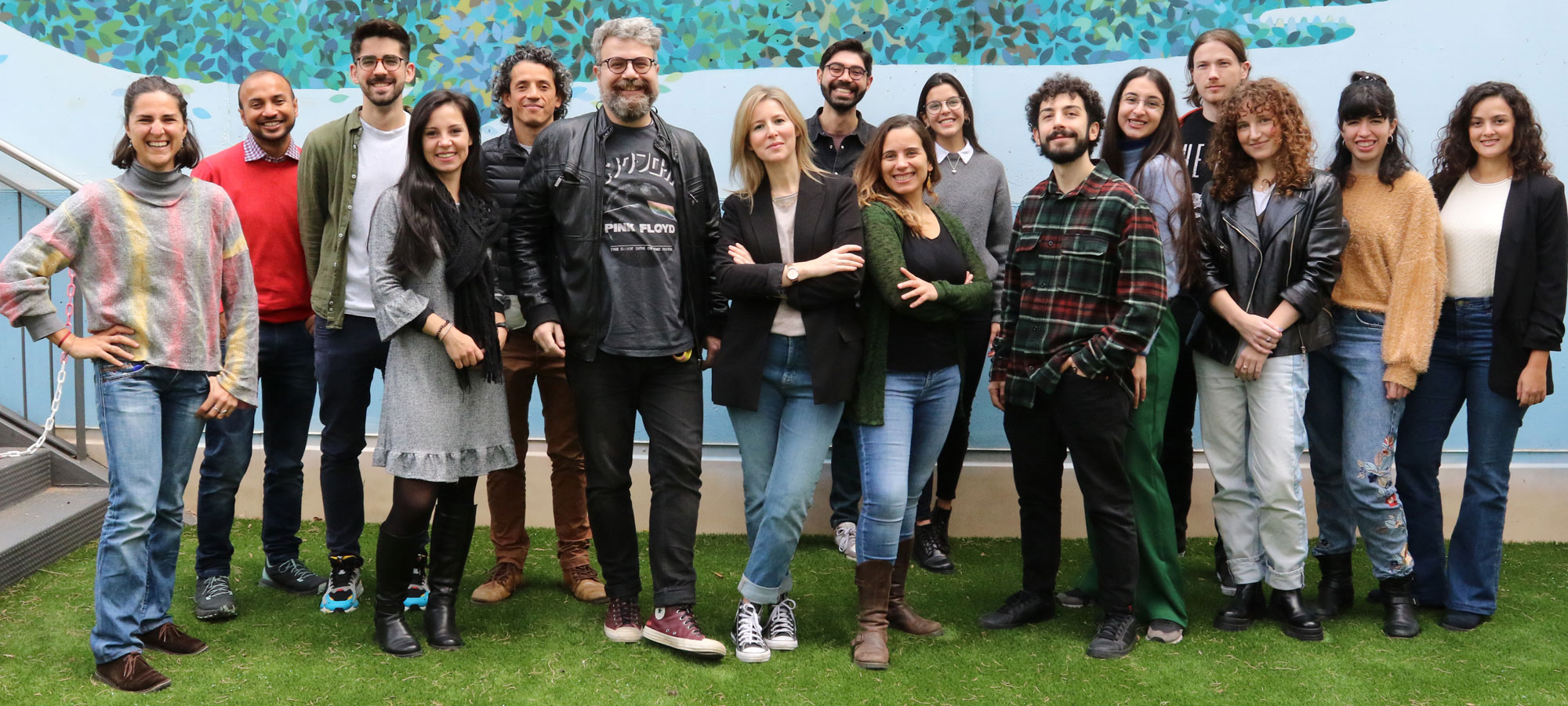
 ibecbarcelona.eu
ibecbarcelona.eu